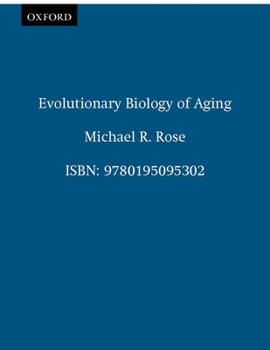Evolutionary Biology of Aging
Select Format
Select Condition 
Book Overview
This unique book looks at the biology of aging from a fundamentally new perspective, one based on evolutionary theory rather than traditional concepts which emphasize molecular and cellular processes. The basis for this approach lies in the fact that natural selection, as a powerful determining force, tends to decline in importance with age. Many of the characteristics we associate with aging, the author argues, are more the result of this decline than any mechanical imperative contained within organic structures. This theory in turn yields the most fruitful avenues for seeking answers to the problem of aging, and should be recognized as the intellectual core of gerontology and the foundation for future research. The author ably surveys the vast literature on aging, presenting mathematical, experimental, and comparative findings to illustrate and support the central thesis. The result is the first complete synthesis of this vital field. Evolutionary biologists, gerontologists, and all those concerned with the science of aging will find it a stimulating, strongly argued account.
Format:Paperback
Language:English
ISBN:0195095308
ISBN13:9780195095302
Release Date:October 1994
Publisher:Oxford University Press
Length:240 Pages
Weight:0.85 lbs.
Dimensions:0.7" x 6.1" x 9.2"
Customer Reviews
1 rating
Superb book on the fundamental nature of aging
Published by Thriftbooks.com User , 23 years ago
This book does an excellent job of describing, in both general and mathematical terms, why aging occurs. The discussions of antagonistic pleiotropy, decreasing selective pressure after reproduction, the possible molecular mechanisms of aging, and more, provide an excellent foundation for further thinking and studying in the field of aging.





